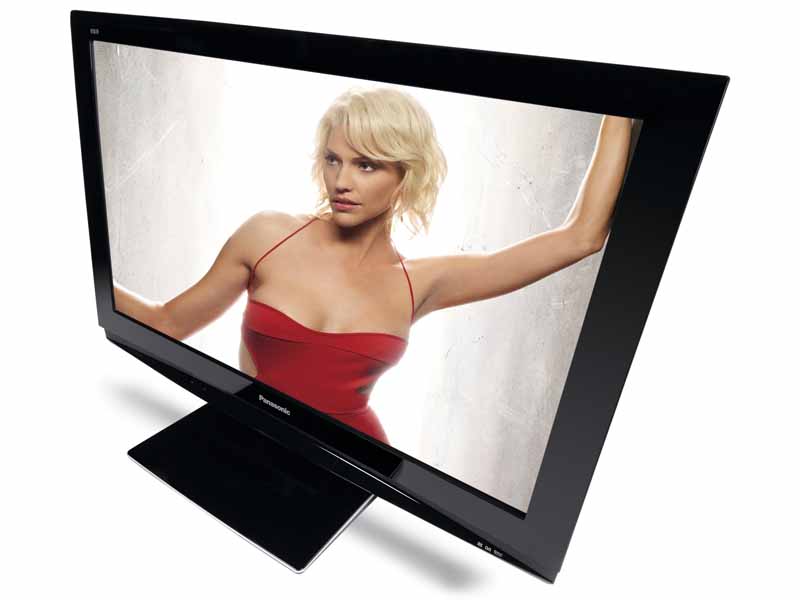Freesat vs Sky: how to make the right HD choice
Choosing a hi-def TV service? Read this first!

Until recently, Sky's dominance of UK satellite television was unchallenged.
With hundreds of channels, it offers practically everything a TV addict could ask for – first-run US entertainment series, classic British TV, movies, world-beating sports coverage, the best choice of hi-def content (including BBC HD and Channel 4 HD), a friendly 7-day EPG, interactive services and the highly-regarded Sky+ PVR.
Sky also 'simulcasts' the five main networks, thereby guaranteeing reliable reception of their key channels to those living in areas where digital terrestrial pickup is patchy.
The catch is that if you want the whole deal it can set you back £57 per month, a fairly sizeable chunk of change. In addition, you'll have to pay installation costs – typically £60, although Sky frequently waives these in order to entice new subscribers. Still, if you are keen to have access to dedicated HD movie channels and the joys of Sky Sports, then the broadcaster's Pay-TV service is a compelling proposition.
Free Sky TV
What many don't realise is that Sky also offers a 'Freesat from Sky' service
A one-off £150 payment buys you minidish installation, a Sky Digibox and a special viewing card that 'unlocks' the channels (most notably Five's and FilmFour) that are encrypted solely to prevent reception in overseas locations for which the channel doesn't have broadcasting rights. And with claims of 'over 230' digital services on offer, it does seem a tempting option.
Sign up for breaking news, reviews, opinion, top tech deals, and more.
It can prove to be advantageous to Sky, too – upgrading to its pay-TV services is easy, because all of the necessary equipment is present and correct. All that's needed is a viewing-card upgrade, which will be issued as soon as your Sky account is set up.
If your house already has a working minidish on the wall (installed, perhaps, by a previous tenant) or a satellite TV outlet (a feature of many recent developments) then Freesat from Sky can be cheaper still. Buy a second-hand Digibox (they're available from specialist retailers, and you often find them on sale on eBay and car boot sales), and order the £25 Freesat from Sky viewing card. When the card arrives, phone Sky in order to get the card 'paired' with the box, and you're sorted!
Upgrading to one of Sky's Pay-TV packages is also possible via this route. Sadly, you won't get the useful PVR functionality of a Sky+ box even if you acquire one of these (such clever televisual tricks are only available to subscribers), although a second-hand SkyHD box – if you can find one – will give you reception of BBC HD (but not Channel Four HD). In addition, its Sky+ PVR facilities will be 'locked out'.
Free download: the latest TechRadar news and reviews in your Windows Vista Sidebar
Opting for Freesat
So just how does Freesat fit into the equation? What are the benefits of choosing this new no-subscription satellite service?
In return for a one-off payment, a Freesat HD system offers over 130 digital channels via a specially-designed 7-day EPG. Most of the big players (BBC TV/radio, ITV and C4) are present. Most? Unfortunately, none of Five's 'bouquet' of channels are currently available thanks to the broadcaster's encryption entanglements with Sky; however, Freesat tells us that Five's main channel will be 'available soon'.
But there are clear advantages. Most obviously, Freesat represents the most affordable route to subscription-free HDTV. If you opt for one of the HD-compatible Freesat boxes, or Panasonic's range of plasma TVs with built-in Freesat HD tuners, then both BBC HD and ITV HD are available at the touch of a button. ITV HD – only a very limited Red Button service at present – is currently exclusive to Freesat, which naturally means that Sky and cable subscribers cannot join in the fun.
The TechRadar hive mind. The Megazord. The Voltron. When our powers combine, we become 'TECHRADAR TEAM'. You'll usually see this author name when the entire team has collaborated on a project or an article, whether that's a run-down ranking of our favorite Marvel films, or a round-up of all the coolest things we've collectively seen at annual tech shows like CES and MWC. We are one.